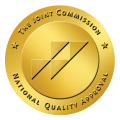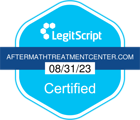The journey of recovery from substance abuse and various mental health disorders is often challenging, with relapse being a common occurrence. Relapse prevention therapy (RPT) plays a crucial role in sustaining recovery by equipping individuals with the skills and strategies they need to avoid setbacks. Learning more about relapse prevention therapy can give patients the hope they need to start their life anew without substance use. 
If you or someone you care about may be at risk of a return to use, you can turn to Aftermath Addiction Treatment Center. Relapse prevention therapy is just one of our many addiction treatment programs that help in Wakefield, MA. We are committed to helping each patient navigate the challenges of recovery as they transition back to their daily routine. There’s always hope for long-lasting recovery at Aftermath Addiction Treatment Center. Call us today at 855-795-1226, and we can tell you more about our approach to relapse prevention.
What Is Relapse Prevention Therapy?
Relapse prevention therapy is a form of cognitive-behavioral therapy designed to help individuals maintain the progress they made during treatment and avoid falling back into harmful habits or behaviors. The therapist works with the patient and focuses on the dynamics of relapse, helping patients to identify triggers and high-risk situations, as well as develop effective coping strategies.
Relapse is commonly segmented into three distinct stages: emotional relapse, mental relapse, and physical relapse.
- Emotional relapse – The first stage is characterized by changes in emotions, attitudes, and behaviors that make a person vulnerable to relapse, but the individual is not yet consciously thinking about using. Emotional relapse is marked by behaviors and feelings that indicate a person’s mental health may be worsening. These might include anxiety, mood swings, isolation, poor sleeping habits, and a lack of self-care. These negative emotions and behaviors might create a domino effect, leading to mental relapse if not addressed.
- Mental relapse – During this stage, there’s a battle happening in the patient’s mind. This stage can be characterized by constantly thinking about people, places, and things associated with past substance use. There might be glamorizing past use, bargaining, lying, and the beginning of planning relapse.
- Physical relapse – This is the stage where an individual starts using the substance again. It usually starts small, but once the substance is reintroduced, it’s extremely challenging to stop the cycle, leading to a full-blown relapse.
Relapse prevention therapy utilizes a wide range of therapeutic approaches including cognitive restructuring and mindfulness techniques to equip individuals with a toolbox of resources and skills they can use when facing potential triggers or high-risk situations.
What Happens in a Relapse Prevention Therapy Program
The relapse prevention therapy program at Aftermath Addiction Treatment Center generally includes several key elements aimed at promoting sustainable recovery:
Initial Assessment
The program usually begins with an assessment to determine the individual’s needs, strengths, weaknesses, and personal circumstances. This initial step aids in tailoring the program to the individual’s unique situation.
Identification of Triggers and High-Risk Situations
One of the primary objectives of RPT is to help individuals identify their personal triggers and high-risk situations. These might include certain people, places, emotions, or events that increase the likelihood of a relapse.
Development of Coping Strategies
After identifying potential triggers, individuals work with therapists to develop effective coping strategies. These can range from cognitive strategies (such as challenging irrational thoughts) to behavioral strategies (like finding healthy ways to manage stress).
Skill-Building Sessions
RPT often includes skill-building sessions aimed at improving various abilities essential for maintaining recovery. These might include communication skills, problem-solving skills, and emotion regulation skills.
Relapse Management
Even with the best strategies, relapses can happen. Relapse prevention therapy equips individuals with the tools they need to manage a relapse effectively, should it occur. The focus is on viewing a relapse as a learning opportunity rather than a failure, and quickly returning to the path of recovery.
Ongoing Support and Aftercare
Most relapse prevention therapy programs provide ongoing support even after the completion of the program. This might involve check-in appointments, alumni groups, or continued access to resources.
Contact Aftermath Addiction Treatment Center Today
At Aftermath Addiction Treatment Center, relapse prevention therapy is a vital part of the recovery journey. This program offers numerous benefits and provides a structured, supportive environment where individuals can learn, grow, and most importantly, maintain their hard-earned progress. There’s no reason to let addiction limit what you can do both now and in the future. Talk to one of our admissions specialists today by calling 855-795-1226 or by filling out our secure online form.




